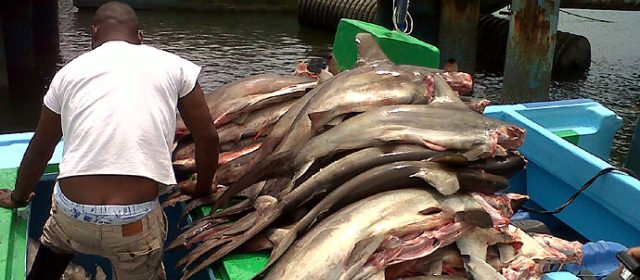By Maria Angella Fortich Fraija
"Illegal fishing is one that violates the established rules of a fishery that is not regulated, that nobody manages" - WWF
Illegal fishing is one of the practices that endangers global food security and the marine biodiversity of our oceans. More and more cases are being heard of fishermen who do not follow the instructions of the Regulation of the fight against illegal, unreported and unregulated (IUU) fishing, which endangers the way in which we consume fish and their habitats.
How does illegal fishing affect communities economically?
It is no secret to anyone that sustainable fishmongering helps communities in food and trade issues. But, every year the levels of illegal fishing by groups with economic interests are increased. The INDR affirms that between 13% and 31% have been captured by them and have been species that come from a suspicious fishing process.
Annually, between 11 and 26 million tons of illegally harvested fish are caught . Losses are estimated between 10,000 and 23,500 million dollars for the economy worldwide and 40% of these economic damages go directly to fishing communities.

But... How is the issue in Colombia?
In Colombia, one of the big problems is the fishing of wolf fish, this has been prohibited since 2019 because five of the species of this fish are in danger of extinction . However, local fishermen continue to fish for it under the name Pargo Loro. The problem with fishing for this species is that it is not only a latent threat to their populations, but also to the coral reefs that depend on them to stay healthy.
In the Seaflower Marine Reserve more than 600 kilograms of different species of parrotfish are seized every year. This reserve is located in the archipelago of San Andrés, Providencia and Santa Catalina, "combining around 77% of the coral areas of all Colombia and was also declared a biosphere reserve by Unesco, as it houses the third largest coral reef in the world. world” - Mongabay
According to the Ministry of Environment and Sustainable Development, 60% of the country's reefs are threatened, 20% of them may disappear in the next decade, 19% have already been destroyed and 15% are in critical condition.
Laws for maritime care in Colombia
The Colombian Ocean Commission together with national organizations worked for the construction process of the penal project for the care of our marine habitats. All these laws are reflected byarticle 335 of the Colombian penal code ; in Law 1851 of 2017 National Level, Decree 1835 of 2021 National Level and in Decree 1878 of 2021 National Level.
These laws have in common the penalization of the use of unauthorized instruments or of technical specifications that do not correspond to those allowed by the competent authority; the drying up or lowering of the level of rivers, lagoons, swamps or any other source for fishing or fishing purposes; the alteration of the ecological environment of the species that live in hydrobiological resources as a consequence of exploitation activities of non-renewable natural resources; and lastly, the construction of works, nets, meshes or any other element that prevents the free and permanent transit of fish in the seas, swamps, lagoons, pipes, rivers and canals.

The situation can be improved if we abide by sustainable fishing and help communities to have better economic opportunities so that they do not fall back on illegal activities to survive. Also, the authorities must impose the laws established by the State to combat the illegality of this activity and to be able to promote better opportunities for the communities that live in the areas where the fishing takes place. Likewise, we must bear in mind that the most important thing is to maintain fishing sustainability so as not to harm the environment.



